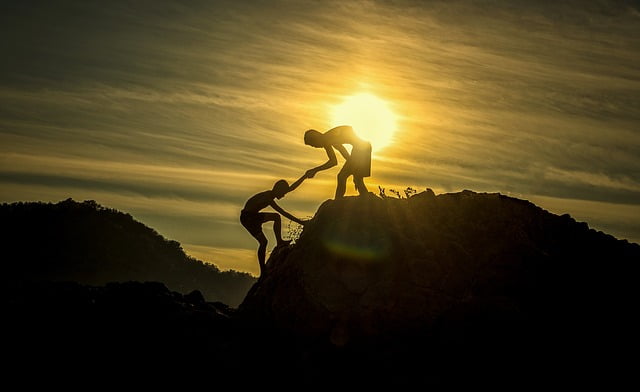Gratitude is one of life’s unique mysteries.
As children, our parents constantly reminded us to be grateful, whether it was for the food on the table that we were praying we wouldn’t have to eat, or for the roof over our heads.
When we grew up and had children of our own, we did the same.
We value gratitude so highly because we know that people who don’t express it put a major limit on their potential.
If you aren’t grateful:
- No one will want to give you a promotion.
- No one will recommend you for that amazing job.
- No one will want to follow your lead.
People who practice gratitude, on the other hand, have an incredible amount of influence and success.
This is universally agreed upon, yet—if we’re being honest—very few people actually know how to be grateful.
Why? Because practicing gratitude often involves going against the very feelings and emotions we experience on a daily basis.
We know it’s what we’re supposed to do, but it feels unnatural.
Especially if things aren’t going your way.
In the middle of a tough moment, all you want to do is pull your hair out, tell someone how they wronged you, or break down and cry.
To feel that way is to be human.
Fortunately, there are specific things you can do to train your mind to be grateful that go beyond simply telling yourself you should be more grateful.
If you want to really understand how to be grateful, these give you a solid foundation upon which to build.
3 Tips for Learning How to Be Grateful
1. Understand that you can choose to be grateful
You and I were made with a will that is stronger than our emotions—that means we have the power to change our emotions, feelings, perceptions, and point of view.
If that sounds silly to you, think about this…
What do you do when you’re having an unpleasant conversation at home and the phone suddenly rings?
You answer with a calm and collected “Hello!”.
That’s because you and I can choose how we act despite how we feel.

The best part? Eventually, our feelings start to follow our actions.
If I’m sad and decide to watch mindless TV while eating a gallon of ice cream, I’ll feel worse—but if I’m sad and decide to turn on happy music or count my blessings, I’ll feel better.
It may not happen immediately, but with practice, you can train your feelings to follow your actions.
2. Look for reasons to love your problems
If you live in America, have a job, and are reading this blog post on a computer, cell phone, or tablet right now, the majority of your problems are most likely not as serious as you think they are.
In fact, many of the problems we face are just signs of the blessings we’ve experienced! Think about it…
- If your muscles ache at the end of a long day at work, that means you’re able to move, lift, and carry things—abilities that hundreds of thousands of people would love to have. It also means you’re employed.
- If something is wrong with your house and needs to be fixed, that means you have a roof over your head.
- If you’re feeling unfulfilled at work or in life, that means you’re aware that you have a much larger purpose, and a tremendous opportunity to fulfill it.
So next time you get bent out of shape about something (because we all do), take a deep breath and be thankful for what you do have and what is going right.
Stop, take a breath, and write your blessings down if you need to! When you look, you will find them.
3. Don’t keep it to yourself—share gratitude with others
Changing your feelings by practicing gratitude becomes even easier if you start using gratitude to help others change the way they feel, too.

Everyone longs for appreciation, and tons of people do great work that goes unnoticed. You can be the person who notices them and gives them the appreciation they deserve.
Opportunities for expressing gratitude are all around you, hidden in life’s everyday moments:
- Let the cashier at the grocery store know you appreciate his speedy service.
- Text your mom and let her know you’re grateful for the way she raised you.
- Leave a note of appreciation for the crew that cleans your office. Point out something specific you’ve noticed they do extremely well, even if it seems small.
Gratitude is contagious. When you give it to others, your feelings can’t help but get caught up in the action.
Knowing How to Be Grateful Is Vital to Success
Remember, being grateful takes practice and consistent action. It’s something we should never stop learning how to do.
When you start each day with a commitment to that practice, I promise you will start seeing the world in a new light.
People will want to be around you. And if you are someone people love being around, great things happen.
You’ve heard the saying, “A rising tide lifts all boats.”
In this case, those “boats” are all the details of your life—your relationships, goals, work performance, and interactions—and gratitude is the “rising tide”—it helps you take all of them to the next level.
Question: What is one thing you will do today to practice gratitude? Leave a comment below and let me know!



